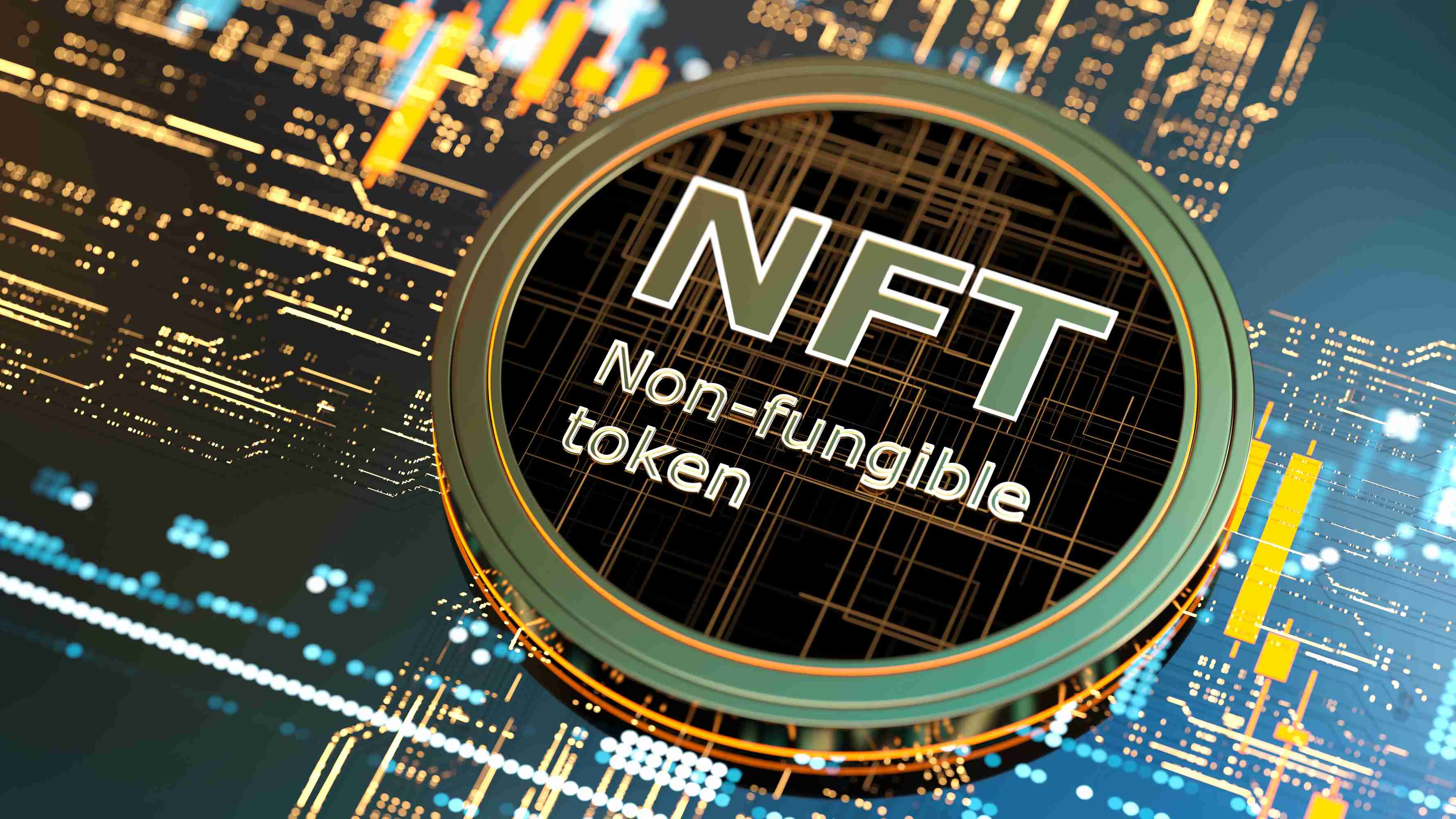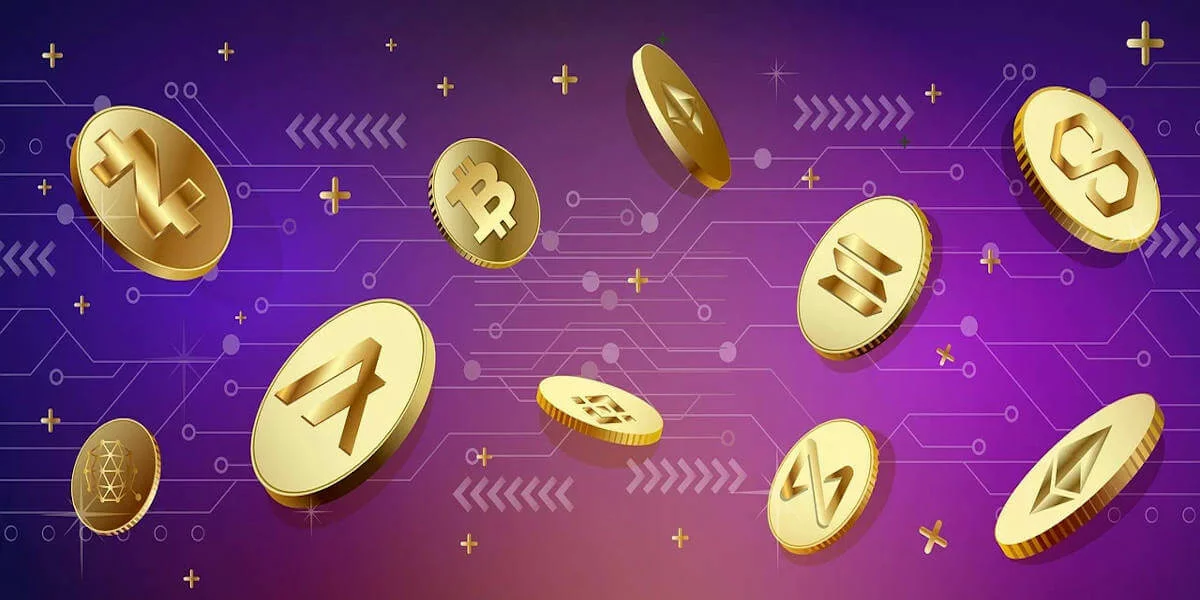Introduction
Tokenization technology has emerged as a groundbreaking innovation in the digital landscape, revolutionizing the way we perceive and interact with assets and investments. Tokenization involves the process of converting traditional assets, such as real estate, art, or company shares, into digital tokens that can be bought, sold, and traded securely on a blockchain. This technology has opened up new opportunities for investors, as it enables fractional ownership, increased liquidity, and enhanced transparency.
Investing in tokenization technology has gained significant attention in recent years, attracting both traditional investors and tech-savvy individuals. By leveraging the power of blockchain and smart contracts, tokenization offers a range of benefits that were previously unimaginable.
This article aims to explore the intricacies of tokenization technology and provide insights into the opportunities and considerations for investors looking to tap into this emerging market. We will discuss the benefits of investing in tokenization technology, evaluate different tokenization projects, and explore key factors to consider before making an investment. Additionally, we will provide tips for successful investment in tokenization technology and shed light on the risks and challenges involved.
It is important to note that while tokenization technology presents promising prospects, it is not without its share of uncertainties. Therefore, investors must conduct thorough research and exercise caution when delving into this exciting domain. By the end of this article, you will have a comprehensive understanding of tokenization technology and the necessary knowledge to make informed investment decisions.
Understanding Tokenization Technology
Tokenization technology is a revolutionary concept that transforms real-world assets into digital tokens on a blockchain platform. Traditional assets such as real estate, artwork, commodities, and even intellectual property can be represented by digital tokens, allowing them to be easily bought, sold, and traded.
At its core, tokenization involves the creation of cryptographic tokens, which are essentially digital records of ownership. These tokens are secured and verified through blockchain technology, ensuring their authenticity and preventing fraud or tampering.
By tokenizing assets, their value can be divided into fractional shares, allowing for greater accessibility and liquidity. For example, a high-value property can be divided into thousands of tokens, enabling investors to buy and sell even a small portion of the asset. This fractional ownership model opens up investment opportunities to a broader range of individuals, including those with limited capital.
Another fundamental aspect of tokenization technology is its ability to enhance transparency and trust. Each transaction and ownership transfer of a tokenized asset is recorded on the blockchain, creating an immutable and auditable ledger. This level of transparency helps to eliminate intermediaries and reduces the risk of fraud, making it an attractive option for investors.
Moreover, tokenization technology has the potential to streamline complex processes and barriers associated with traditional asset ownership. It eliminates the need for intermediaries like brokers, lawyers, and custodians, reducing costs and increasing efficiency. This technology can significantly improve liquidity and accessibility in traditionally illiquid markets such as real estate and fine art.
It is important to note that tokenization is not limited to physical assets alone. Intellectual property, such as patents, copyrights, and trademarks, can also be tokenized. This opens up new avenues for IP owners to monetize their creations and allows investors to participate in the potential financial returns associated with intellectual property rights.
Overall, tokenization technology is revolutionizing the way we perceive and invest in assets. By leveraging blockchain technology, it enables fractional ownership, enhances transparency, and significantly improves liquidity. The potential applications of tokenization are vast, and this technology has the potential to reshape various industries as we know them.
Benefits of Investing in Tokenization Technology
Investing in tokenization technology offers a range of compelling benefits that have attracted the attention of both traditional investors and tech enthusiasts alike. Let’s explore some of the key advantages:
- Liquidity: Tokenization unlocks liquidity in traditionally illiquid markets by allowing assets to be divided into fractional shares. This fractional ownership model enables investors to buy and sell even small portions of high-value assets, providing greater flexibility and access to a wider investor base.
- Accessibility: Tokenization lowers the barriers of entry to investment opportunities. By enabling fractional ownership, it allows individuals with limited capital to engage in previously exclusive markets, such as real estate and fine art. This democratization of investment opportunities opens doors for smaller investors and promotes financial inclusion.
- Transparency: Blockchain technology, the backbone of tokenization, ensures transparency and immutability. Each transaction and ownership transfer is recorded on the blockchain, creating an auditable trail. This transparency reduces the risk of fraud and provides investors with confidence in the integrity of the investment process.
- Efficiency: Tokenization eliminates the need for intermediaries in asset transactions. By utilizing smart contracts and blockchain technology, it streamlines complex processes, reduces paperwork, and lowers transaction costs. The removal of intermediaries improves the efficiency and speed of transactions, saving time and resources.
- Diversification: Tokenization provides investors with the opportunity to diversify their portfolios across various asset classes. With tokenization, investors can access a broader range of assets, including real estate, artwork, commodities, and intellectual property. This diversification helps mitigate risks and potentially increases returns.
- Global Accessibility: Tokenization enables investors to access global investment opportunities without geographical limitations. Through digital tokens, investors can participate in assets from anywhere in the world, breaking down barriers and expanding their investment horizons.
- Market Efficiency: Tokenization has the potential to increase market efficiency by integrating fragmented and illiquid markets. By introducing liquidity and transparency, it can attract more participants and foster price discovery. This increased market efficiency benefits both investors and asset owners.
These benefits highlight the transformative power of tokenization technology. Its ability to enhance liquidity, accessibility, transparency, and efficiency in asset investments creates new opportunities and reshapes traditional investment paradigms.
Evaluating Different Tokenization Projects
As tokenization technology gains momentum, numerous tokenization projects and platforms have emerged in the market. Evaluating and selecting the right tokenization project is crucial for successful investment. Here are some key factors to consider when evaluating different tokenization projects:
- Regulatory Compliance: Ensure that the tokenization project complies with relevant regulations in the jurisdictions where it operates. This will help mitigate legal and compliance risks and provide a more secure investment environment.
- Technology and Security: Assess the underlying technology and security measures implemented by the tokenization project. Blockchain technology, smart contracts, and robust security protocols should be in place to protect investors’ assets and ensure the integrity of the platform.
- Track Record: Consider the track record and reputation of the tokenization project and its team. Look for projects that have successfully executed previous offerings and have a history of transparency and accountability.
- Asset Selection: Evaluate the range and quality of assets being tokenized by the platform. Diversification can be advantageous, so choose projects that offer a variety of assets across different sectors and geographies.
- Liquidity and Marketplaces: Investigate the liquidity options and marketplaces provided by the tokenization project. A robust secondary market where tokens can be bought, sold, and traded easily is essential for investment liquidity.
- Tokenomics: Scrutinize the tokenomics of the project, including the token’s utility, supply, and distribution. Understanding the economic structure of the token and its potential for value appreciation is critical for investment decision-making.
- Community and Investor Support: Assess the community and investor support surrounding the tokenization project. A strong and active community of investors promotes confidence in the project and can provide valuable insights and support.
- Transparency and Disclosure: Look for tokenization projects that prioritize transparency and provide comprehensive disclosure of information about the assets, legal framework, governance structure, and potential risks associated with the investment.
It is important to thoroughly evaluate and compare different tokenization projects based on these factors, considering your investment goals, risk tolerance, and regulatory requirements. Conducting due diligence and seeking expert advice can assist in making an informed investment decision.
Remember, investing in tokenization projects involves risks, and it is crucial to diversify your investments and allocate only what you can afford to lose. The evaluation process should be ongoing, as the tokenization landscape continues to evolve.
How to Choose the Right Tokenization Platform
Choosing the right tokenization platform is crucial for successful investment in the world of tokenization. With numerous platforms available, each offering unique features and opportunities, it is important to consider the following factors to make an informed decision:
- Security and Technology: Ensure that the platform utilizes robust security measures and employs reliable blockchain technology. Look for platforms that have undergone security audits and implement comprehensive measures to protect investors’ assets.
- Compliance: Determine if the platform complies with relevant regulations and possesses the necessary licenses to operate legally. Regulatory compliance ensures a more secure investment environment and reduces potential legal risks.
- User-Friendly Interface: Consider the platform’s user interface and user experience. A user-friendly and intuitive interface can make the investment process smoother and more enjoyable.
- Liquidity Options: Investigate the platform’s liquidity options, including access to secondary markets where tokens can be bought, sold, and traded. Liquidity is crucial for investment flexibility and the ability to exit the investment if desired.
- Asset Selection: Evaluate the range and quality of assets available for tokenization on the platform. Diversification can be an advantage, so choose a platform that offers a variety of assets across different sectors and geographies.
- Ecosystem and Partnerships: Consider the platform’s ecosystem and partnerships. Platforms with strong networks and partnerships can provide access to a wider range of investment opportunities and potential collaborations.
- Transparency and Governance: Look for platforms that prioritize transparency by providing comprehensive information about the tokenization process, asset details, legal framework, and governance structure. Transparent platforms inspire trust and confidence in investors.
- Token Utility: Assess the utility and potential value appreciation of the platform’s native token. Understanding the token’s role within the ecosystem and its potential for growth can be an additional factor to consider in the decision-making process.
- Community and Support: Examine the platform’s community and support channels. A vibrant and engaged community, along with responsive customer support, can provide valuable insights and assistance throughout the investment journey.
It is essential to carefully evaluate and compare different tokenization platforms based on these factors, taking into account your investment goals, risk tolerance, and regulatory requirements. Additionally, conducting due diligence, seeking expert advice, and engaging with the platform’s community can provide valuable insights and enhance confidence in your decision.
Remember, investing in tokenization platforms involves risks, and it is important to diversify your investments and only allocate what you can afford to lose. Continuously monitoring the platform’s performance and staying updated on industry developments can help you navigate the evolving tokenization landscape.
Factors to Consider Before Investing in Tokenization Technology
Before diving into the world of tokenization technology, it is important to consider several key factors to make informed investment decisions. These factors can help evaluate the potential risks and rewards associated with tokenization investments. Here are some factors to consider:
- Market Understanding: Gain a deep understanding of the tokenization market, its potential, and the industries it impacts. Familiarize yourself with the underlying technology, its benefits, and the challenges it may face in the future.
- Education and Research: Invest time in educating yourself about the tokenization process, blockchain technology, and smart contracts. Stay up-to-date with industry news and research reputable sources to enhance your understanding of the space.
- Risk Assessment: Understand the risks involved in tokenization investments. Assess factors such as market volatility, regulatory uncertainties, and technological vulnerabilities to gauge your risk tolerance and make informed decisions.
- Financial Health: Assess your own financial health and readiness to invest in tokenization projects. Determine the amount of capital you can comfortably allocate to such investments without compromising your financial stability.
- Investment Timeframe: Consider your investment timeframe and goals. Tokenization investments may vary in terms of liquidity and return expectations, so align your investment strategy accordingly.
- Diversification: Apply the principle of diversification to your investment portfolio. Consider investing in a variety of tokenized assets across different industries, geographies, and risk profiles to minimize exposure to individual asset performance.
- Legal and Regulatory Factors: Understand the legal and regulatory landscape surrounding tokenization investments in your jurisdiction. Ensure compliance with relevant laws and regulations, and seek professional advice if necessary.
- Due Diligence: Conduct thorough due diligence on tokenization projects and platforms before making investment decisions. Research the project’s credibility, team members, track record, asset quality, and legal documentation to ensure transparency and mitigate potential risks.
- Professional Guidance: Consider seeking expert advice from financial advisors or professionals specializing in tokenization investments. Their knowledge and experience can provide valuable insights and help you navigate the complexities of the market.
- Long-Term Vision: Have a long-term investment perspective when it comes to tokenization technology. While short-term fluctuations may occur, recognizing the potential long-term value and impact of tokenization can guide your investment strategy.
By considering these factors, you can make informed decisions and navigate the tokenization landscape with greater confidence. Remember, investing in tokenization technology comes with its own set of risks, so it is essential to evaluate the opportunities and risks carefully and align your investments with your financial goals and risk tolerance.
Tips for Successful Investment in Tokenization Technology
Investing in tokenization technology requires careful consideration and strategic decision-making. To maximize your chances of success, here are some valuable tips to guide your investment journey:
- Thorough Research: Conduct thorough research and due diligence on tokenization projects and platforms before investing. Understand the technology, team, market, and potential risks involved to make informed investment decisions.
- Stay Informed: Stay up-to-date with the latest developments in the tokenization industry. Follow reputable news sources, attend conferences, and engage with the tokenization community to expand your knowledge and make timely investment decisions.
- Diversify Your Investments: Diversification is key to managing risk. Invest in a variety of tokenized assets across different industries, geographies, and risk profiles to spread your risk and potentially maximize your returns.
- Invest What You Can Afford to Lose: Only invest an amount that you can afford to lose. Investing in tokenization technology involves certain risks, so do not allocate your entire investment portfolio to this space.
- Choose Reputable Platforms: Select tokenization platforms and projects with a proven track record and a reliable reputation. Look for platforms that prioritize transparency, regulatory compliance, and strong security measures.
- Understand Tokenomics: Gain a thorough understanding of the tokenomics of the projects you are considering. Familiarize yourself with the token’s utility, supply, distribution, and potential for value appreciation.
- Consider Long-Term Potential: Take a long-term perspective when investing in tokenization technology. Understand the potential impact of tokenization on various industries and evaluate investments with a focus on their long-term viability.
- Manage Your Emotions: Emotions can cloud judgment and lead to irrational investment decisions. Maintain a disciplined approach, stick to your investment strategy, and avoid making impulsive decisions based on market fluctuations.
- Stay Aware of Regulatory Changes: The regulatory landscape surrounding tokenization technology is still evolving. Stay updated on any regulatory changes or developments that may impact the industry and your investments.
- Seek Professional Advice: Consider consulting with financial advisors or professionals with expertise in tokenization investments. Their guidance can provide valuable insights tailored to your specific financial situation and investment goals.
Remember, successful investment in tokenization technology requires a balance of strategic decision-making, continuous learning, and risk management. By following these tips, you can navigate the exciting world of tokenization with greater confidence and increase your chances of achieving successful investment outcomes.
Risks and Challenges of Investing in Tokenization Technology
While investing in tokenization technology offers exciting opportunities, it is important to be aware of the risks and challenges involved. Understanding and managing these risks is crucial for a successful investment journey. Here are some key risks and challenges to consider:
- Regulatory Uncertainty: The regulatory landscape surrounding tokenization technology is still evolving. Changes in regulations or new legal requirements can impact the viability and profitability of tokenized assets, potentially leading to unforeseen risks and challenges.
- Market Volatility: Tokenized assets may experience price volatility due to various factors, including market sentiment, demand and supply dynamics, and economic conditions. Sudden price fluctuations can impact investment returns and liquidity.
- Technology Risks: Blockchain technology, while robust, is not entirely immune to vulnerabilities. Smart contract bugs, hacking incidents, or technical glitches can compromise the security or functionality of tokenization platforms, leading to potential risks for investors.
- Illiquidity: While tokenization aims to enhance liquidity, certain assets may still face challenges in terms of trading volume and liquidity. Tokenized assets with low demand or limited market access may struggle to provide the desired liquidity for investors.
- Market Speculation: Tokenization technology and the associated market can attract speculative activities and price manipulation. Investors should exercise caution when encountering projects with unrealistic promises or significant price volatility.
- Legal and Compliance: Compliance with legal requirements and regulatory frameworks is crucial. Failure to comply with applicable regulations can result in legal penalties, reputational damage, or restrictions on liquidity.
- Lack of Investor Protection: The decentralized nature of tokenization technology may limit traditional investor protections. Investors may encounter challenges in gathering information, seeking recourse, or addressing disputes in case of fraudulent activities or misrepresentations.
- Operational and Technical Risks: Tokenization platforms may face operational challenges, such as server outages, system failures, or data breaches. These risks can impact the accessibility, security, and overall user experience of the platform.
- Economic Factors: Tokenized assets can be influenced by general economic conditions, including inflation, interest rates, and overall market stability. Economic downturns or disruptions can adversely affect the performance of tokenized assets.
- Emerging Market Risks: Tokenization technology is relatively new, and the market is still in its early stages. Investing in emerging technologies and markets carries inherent risks, including technological uncertainties, limited historical data, and the potential for market consolidation or disruption.
As with any investment, it is essential to conduct thorough due diligence, evaluate risks, and diversify your investments. Carefully consider your risk appetite, investment horizon, and regulatory compliance before venturing into tokenization technology.
Seeking professional advice and staying informed about industry developments can provide valuable insights and help you navigate the risks and challenges associated with investing in tokenization technology.
Future Predictions for Tokenization Technology
Tokenization technology has already made a significant impact on the financial and investment landscape. Looking ahead, the future of tokenization holds immense potential for further transformation and innovation. Here are some future predictions for tokenization technology:
- Increased Asset Tokenization: The scope of assets that can be tokenized is expected to expand further. From traditional assets like real estate and commodities to intellectual property and even personal possessions, tokenization has the potential to revolutionize how we perceive and interact with various forms of value.
- Mainstream Adoption: As tokenization technology matures, it is expected to gain wider acceptance and adoption among individuals and institutional investors. The increased accessibility, liquidity, and transparency offered by tokenization can attract more participants and unlock new investment opportunities.
- Integration with Existing Infrastructure: Tokenization technology is likely to be integrated with existing financial infrastructure, creating a hybrid system that combines traditional financial markets with the benefits of blockchain-based tokenization. This integration can enhance operational efficiency and bridge the gap between traditional and digital assets.
- Fractional Ownership Revolution: Tokenization has already enabled fractional ownership, and this trend is poised to continue. Fractional ownership allows individuals to invest in high-value assets, such as real estate properties or rare artwork, without the need for significant capital. This democratization of ownership can unlock new investment opportunities and broaden access to previously exclusive markets.
- Increased Liquidity: The liquidity of tokenized assets is likely to improve as more platforms and marketplaces emerge. Secondary markets for trading tokenized assets are expected to become more robust and efficient, providing investors with greater flexibility to buy, sell, and trade their holdings.
- Global Investment Opportunities: Tokenization technology has the potential to create a borderless investment landscape. Investors can access and trade tokenized assets from anywhere in the world, enabling seamless global investment opportunities and facilitating cross-border transactions.
- Evolution of Regulatory Frameworks: Regulatory frameworks related to tokenization are expected to evolve over time to provide clarity and ensure investor protection. Governments and regulatory bodies are likely to develop specific rules and guidelines to govern tokenization, striking a balance between innovation and regulatory oversight.
- Impact on Traditional Financial Intermediaries: Tokenization has the potential to disrupt traditional financial intermediaries, such as banks and brokers. The peer-to-peer nature of tokenization can eliminate the need for intermediaries, reducing costs, and streamlining processes.
- Integration with Internet of Things (IoT): The combination of tokenization and Internet of Things (IoT) technologies can create new opportunities for the tokenization of physical assets. Assets connected to the IoT network can be tokenized, enabling real-time tracking of asset performance, usage, and value.
- Innovative Funding Models: Tokenization enables new forms of fundraising, such as Initial Coin Offerings (ICOs) and Security Token Offerings (STOs), which can disrupt traditional fundraising methods. Tokenization provides a more efficient and accessible way for businesses and startups to raise capital.
These future predictions highlight the potential of tokenization technology to reshape various industries and drive innovation in the financial landscape. As the technology continues to advance and mature, its impact is likely to be significant, offering new investment avenues and transforming how we perceive and engage with assets.
However, it is important to note that these predictions are speculative, and the future of tokenization technology will be influenced by a variety of factors, including regulatory developments, market dynamics, and technological advancements.
Conclusion
Tokenization technology has emerged as a game-changer in the investment landscape, offering unprecedented opportunities for investors and transforming the way we perceive and interact with assets. By converting traditional assets into digital tokens on the blockchain, tokenization enables fractional ownership, enhanced liquidity, transparency, and accessibility.
In this article, we explored the intricacies of tokenization technology, discussing its benefits, evaluation factors, tips for successful investment, potential risks, and future predictions. We highlighted the importance of conducting thorough research, understanding the risks involved, and diversifying investments. Furthermore, we emphasized the need to prioritize regulatory compliance, security, and transparency when choosing tokenization platforms.
While the future of tokenization technology looks promising, it is important to approach tokenization investments with caution and make informed decisions. Engaging with experts, staying updated on industry developments, and conducting due diligence are crucial steps to mitigate risks and maximize investment potential.
As tokenization technology continues to evolve, it has the potential to reshape various industries, democratize investment opportunities, and create a more efficient and transparent financial ecosystem. However, investors should remain aware of the regulatory landscape, market volatility, and technological risks associated with this emerging field.
In conclusion, tokenization technology has opened up a world of possibilities for investors, providing new avenues for asset ownership, liquidity, and diversification. By embracing the potential and navigating the risks intelligently, investors can unlock the full benefits of tokenization technology and potentially reap long-term rewards in this dynamic and innovative space.

























